How Arnold Schwarzenegger went from life on a farm in Austria to becoming a world-famous bodybuilder, actor, and politician
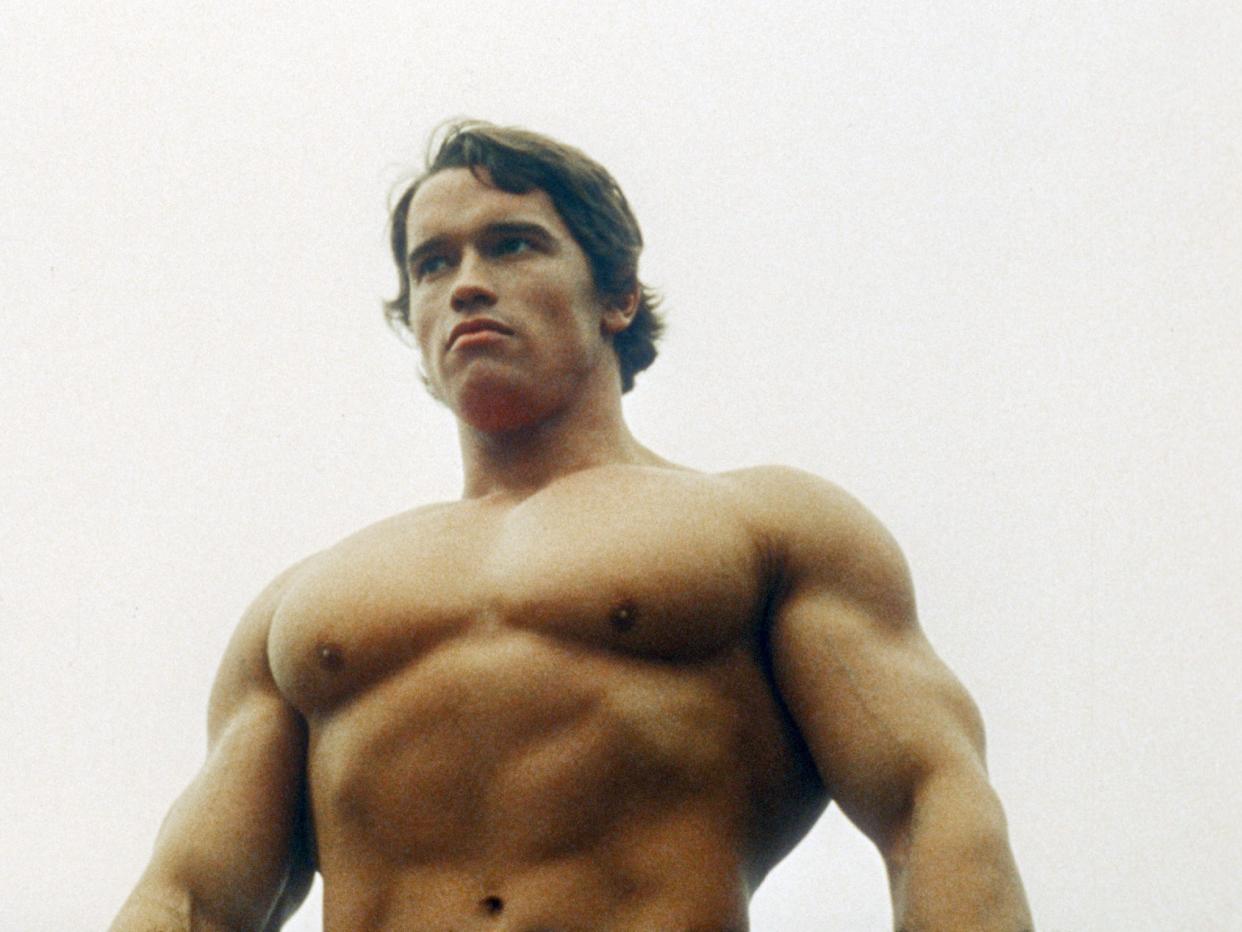
Arnold Schwarzenegger started lifting weights when he was 15 years old. Since then, he won 12 renowned bodybuilding titles.
He later starred in some of the biggest films of the 1980s, including "Terminator" and "Conan the Barbarian."
In 2003, he went into politics and became California's governor following a campaign plagued by sexual misconduct allegations.
Arnold Schwarzenegger became a household name in more than one industry — from bodybuilding to entertainment to politics.
He got his start in bodybuilding. In 1967, he won Mr. Universe when he was 20 years old. He ended up winning it another four times, along with winning Mr. Olympia seven times.
For about a decade, Schwarzenegger was a Hollywood star. He was in a number of big films in the '80s, including "Terminator," "Terminator II," and "Total Recall," making about $35 million per film.
Later, he transitioned to politics. During his run for governor in 2003, 16 women accused him of sexual assault over the previous 30 years. He still won the gubernatorial election and served for two terms.
Arnold Schwarzenegger was born in Austria on July 30, 1947.
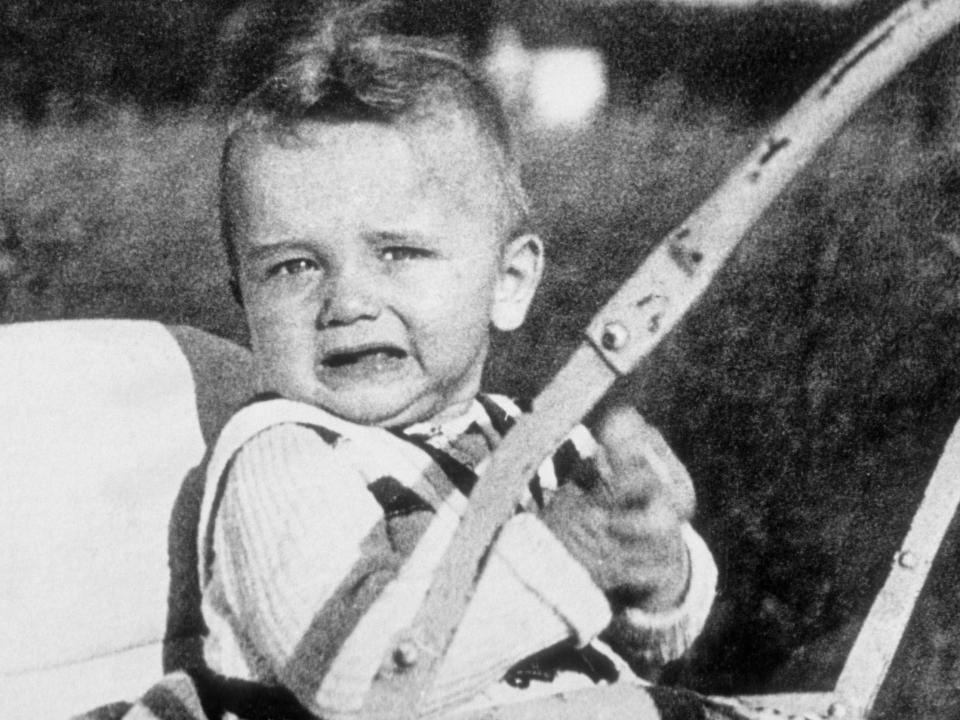
He grew up on a farm where his family didn't have a fridge, telephone, or modern toilet until he was about 14.
He was a skinny child, and his father Gustav, who was a policeman and a one-time Nazi Party member, reportedly beat him.
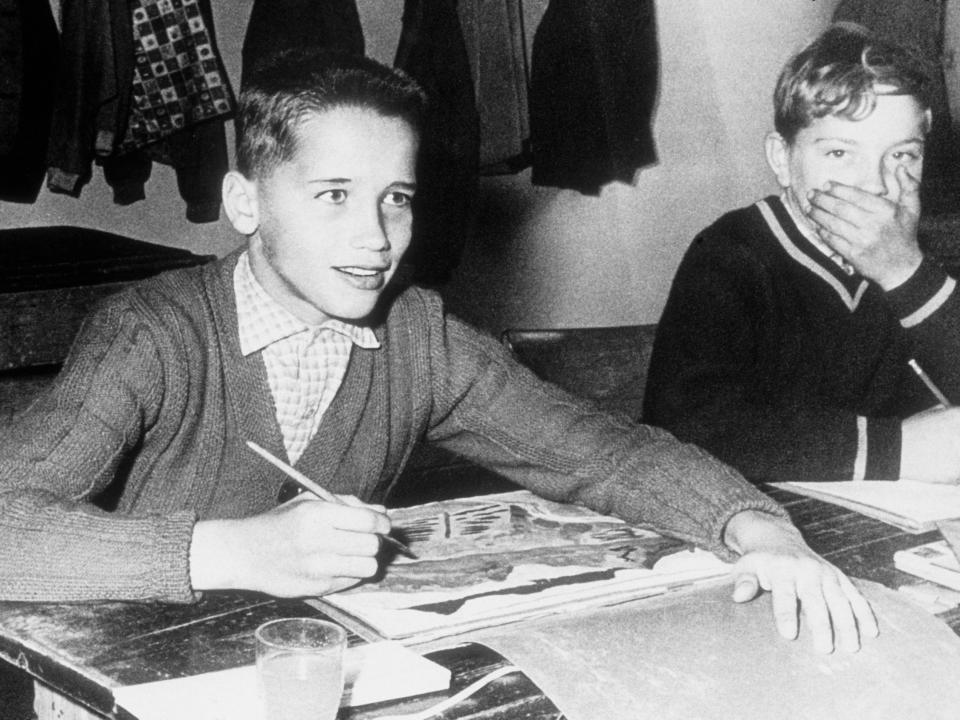
Gustav used to have his two sons race each other or box, and Schwarzenegger was often the loser.
A later investigation found though Gustav chose to join the Nazis there was no evidence he committed any war crimes.
He began bodybuilding when he was 15 years old. He didn't see success in the sport as the end goal but as a way to get where he wanted to go.
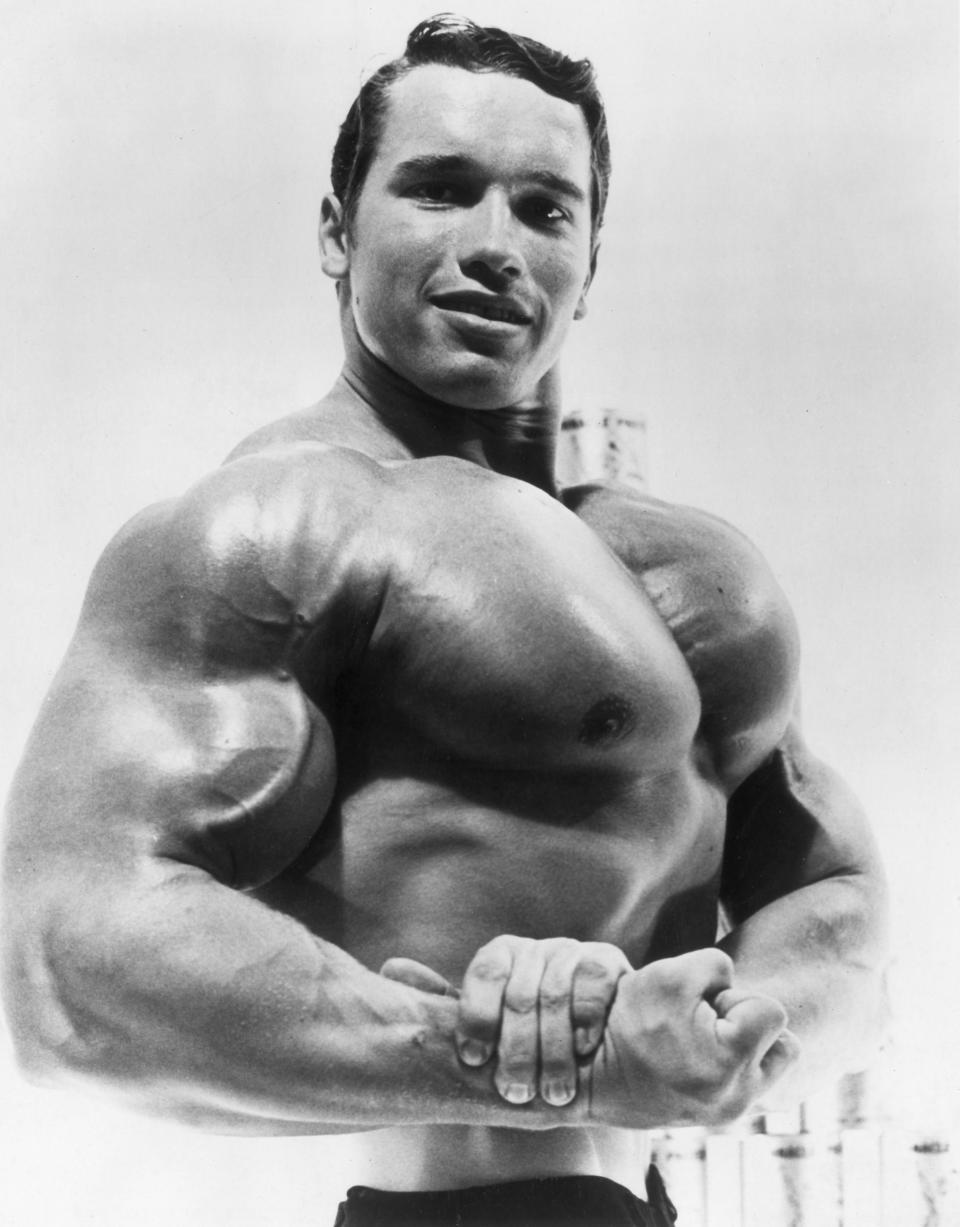
His mother later told reporters he used to sneak out at night to a local stadium and train while his father was asleep.
In 1990, he told a reporter he "was always interested in proportion and perfection."
"When I was 15, I took off my clothes and looked in the mirror," he said. "When I stared at myself naked, I realized that to be perfectly proportioned I would need 20-inch arms to match the … rest of me."
Bodybuilding was "a means to an end" for him, Schwarzenegger said.
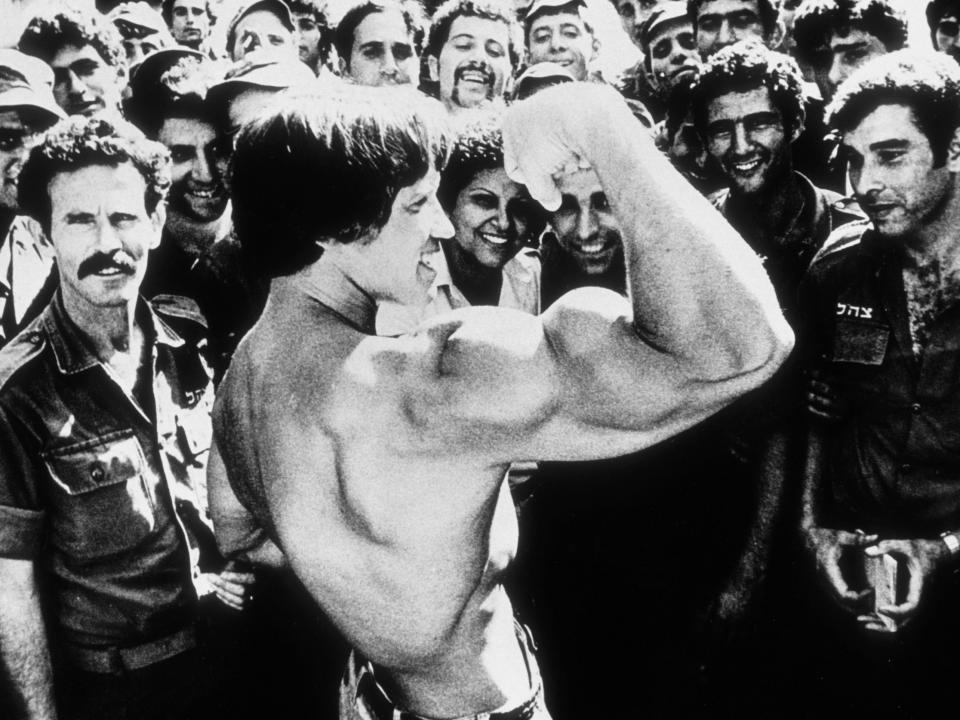
He viewed the activity as his ticket to success in America, a life he envied after seeing it in television shows and magazines.
"I just felt I could succeed there," he told the Tampa Bay Times. "There was no reason for me to hang out in Austria being a farmer when I could do that."
"It was like my passport to all the great things that can happen in life; the things that I admired so much: getting wealthy, becoming an actor, getting an education," he continued. "I felt that bodybuilding could be the vehicle to get there."
In 1967, he won Mr. Universe when he was 20 years old. He ended up winning the title another four times, along with winning Mr. Olympia seven times.
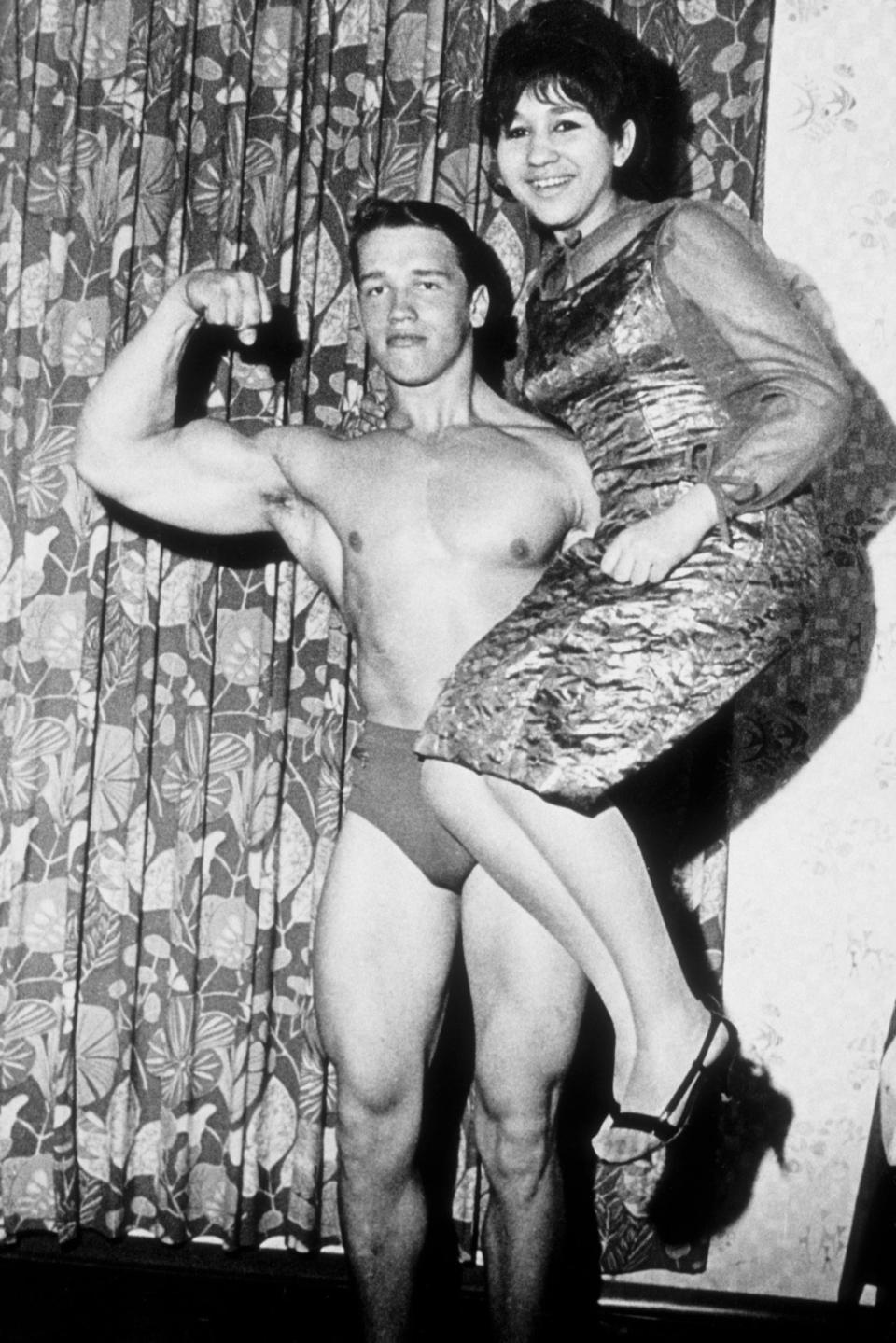
During this period he spent about four hours a day working out.
It wasn't just his physique that led to his victories, but also how well he posed.
He studied ballet to work on moving smoothly from one pose to the next.
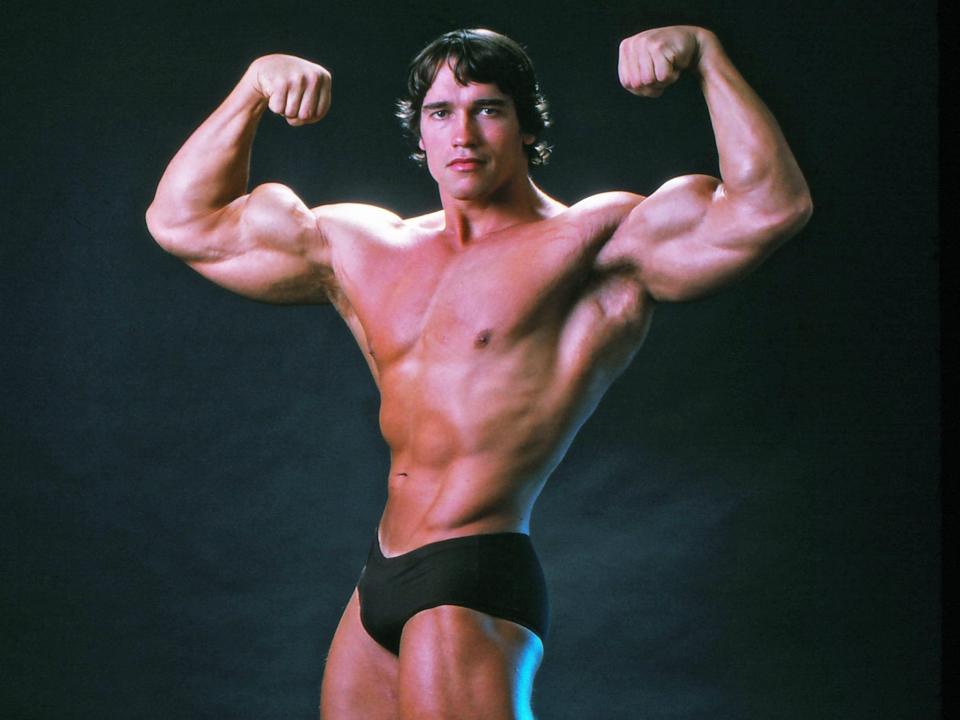
In 1968, he came to America. He entered a bodybuilding competition in Miami and lost.
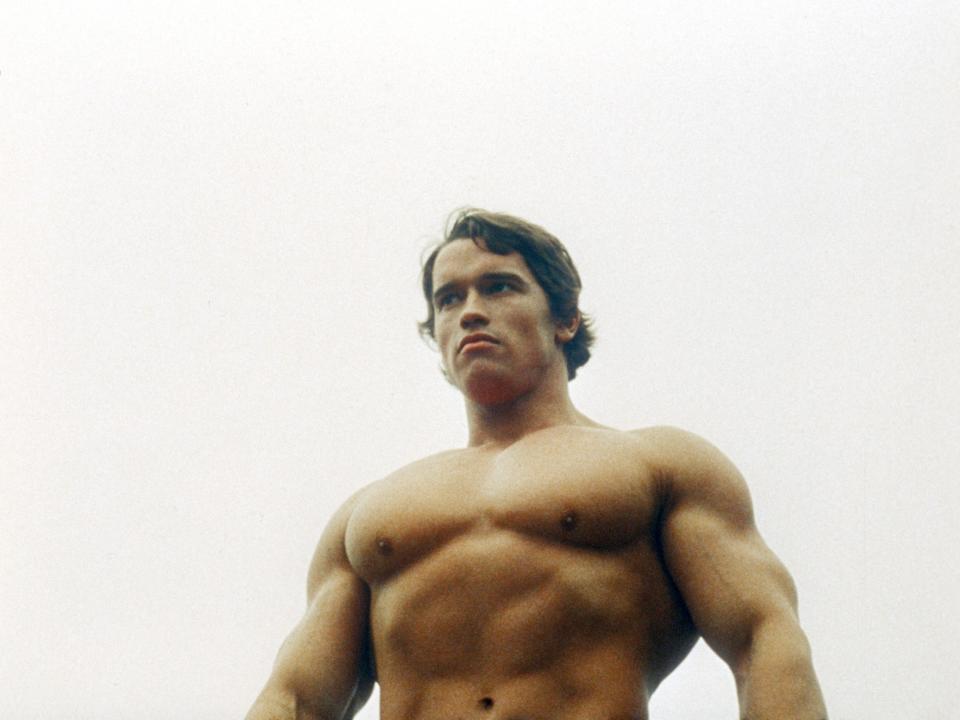
But a well-known bodybuilder named Joe Weider saw something in him and took him under his wing.
"I knew, and he knew, that he could be great," Weider told The New York Times. "We created Arnold. He was special because he was tall, he had willpower, charm, and above all he wanted to win.''
Weider also told The Times during this period they began watching politics and Schwarzenegger decided Republicans made better TV than Democrats.
Schwarzenegger watched Richard Nixon and Hubert Humphrey debating, and after a friend translated Nixon's policies — free trade, less government, more military —he declared he was a Republican, too.
Schwarzenegger decided he would never go back to Europe and moved to Los Angeles.
Along with politics and weightlifting, money was another focus for him.

He studied business administration, graduating from the University of Wisconsin-Superior in 1979. His business acumen has been well documented.
After one bodybuilding victory, he told the media eating bull testicles had helped him win, and later made sure Austria's bull-rearing industry paid him for his promotion.
He also bought real estate, wrote popular fitness books, and started a mail-order business. Later, he diversified into bonds, stocks, and other investments.
By 2017, he was estimated to be worth $300 million, according to CNBC.
In 1970, his debut movie, "Hercules in New York," was released. He used the name Arnold Strong rather than his real name, but would never use it again after.

Unfortunately, the movie wasn't a hit, The New York Times reported.
It wasn't until 1976 when a documentary about the strange world of bodybuilding called "Pumping Iron" was released that things started to pick for him.
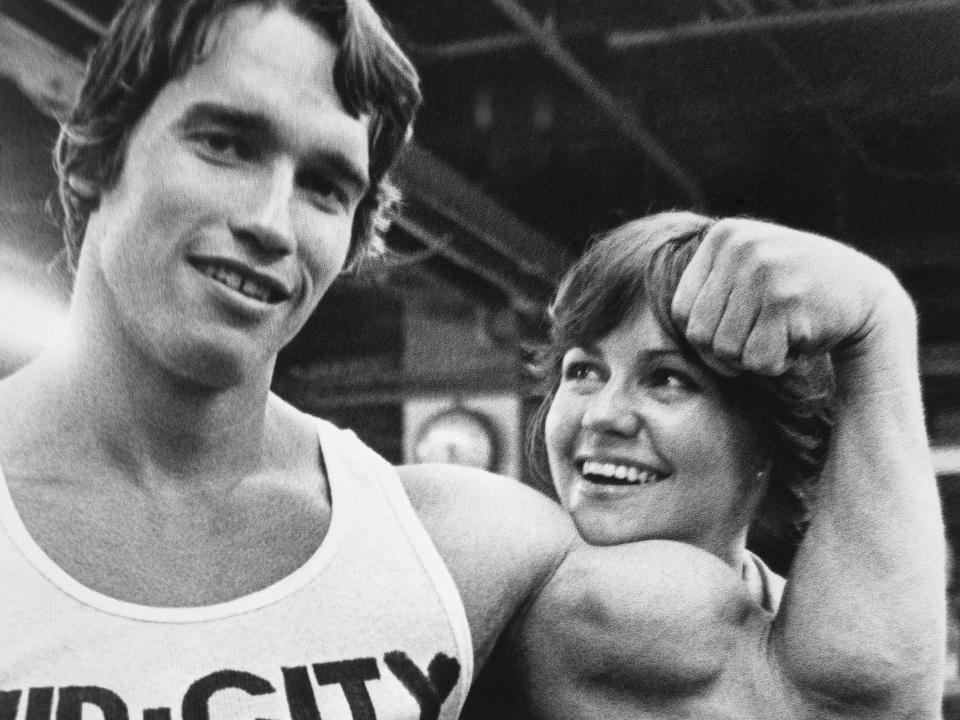
The documentary followed Schwarzenegger as he trained for a Mr. Olympia competition and attempted to defend his title. It became a cult hit. The documentary was where he first started to get noticed on-screen.
In one scene, he lied about refusing to go home for his father's funeral, because he was training for an event. The story was stolen from an Olympic boxer, and Schwarzenegger liked it so much he decided to use it himself.
After the success of "Pumping Iron," Schwarzenegger asked Bobby Zarem, the documentary's publicity agent to get him into a room with Jackie Kennedy, whom he wanted to meet more than anyone.
The following year, in 1977, he met Maria Shriver, the daughter of Eunice Kennedy Shriver and niece of President John F. Kennedy, at a celebrity tennis match.
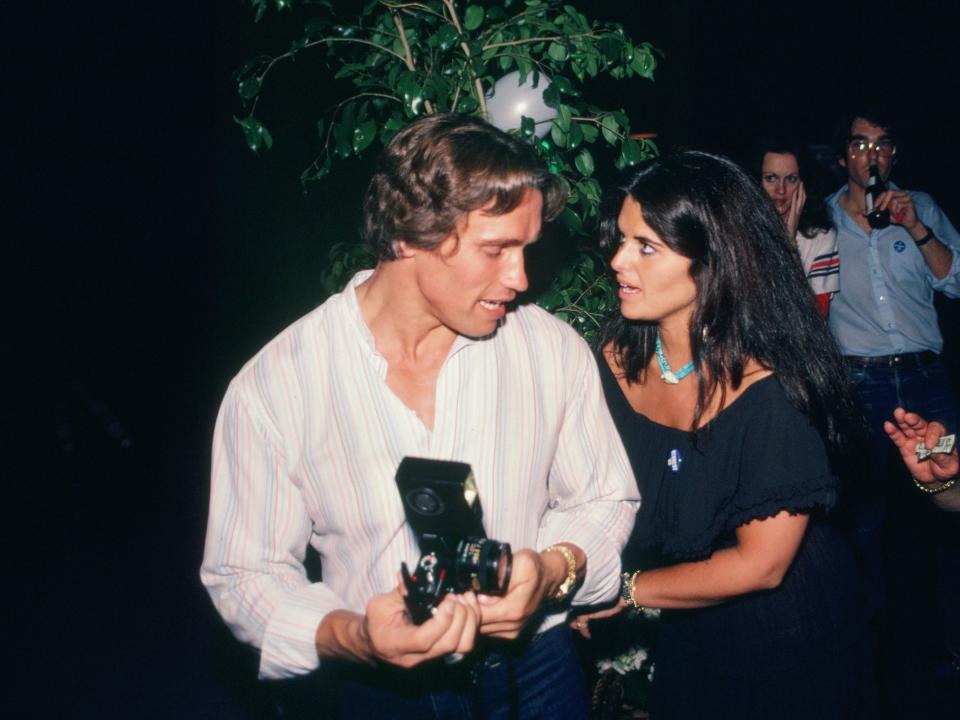
He said to her mother Eunice, "Your daughter has a great ass," The Washington Post reported. He was 30 years old at the time. Shriver was 21.
They dated each other for the next few years. He asked her to marry him several times, but she refused because she wanted to focus on herself and her career before settling down.
She eventually agreed to marry him.
He later said he didn't marry her to marry a Kennedy.
They married in Hyannis, Massachusetts, in 1986.
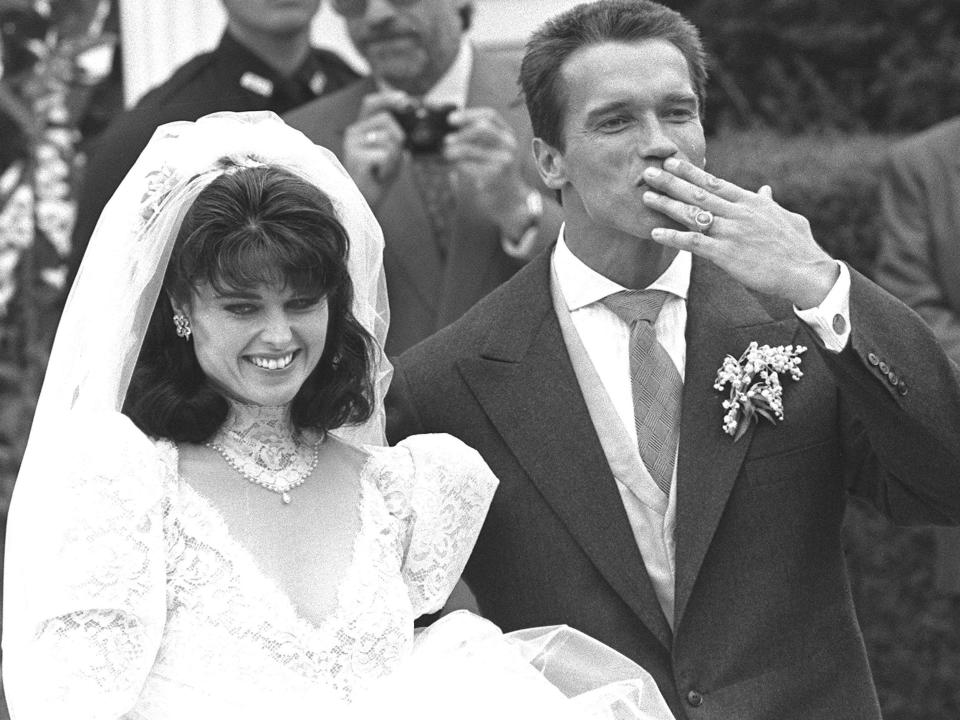
They had about 500 guests at the wedding.
They went on to have four children together: Christopher, Patrick, Christina, and Katherine.
In 1983, Schwarzenegger became a US citizen.
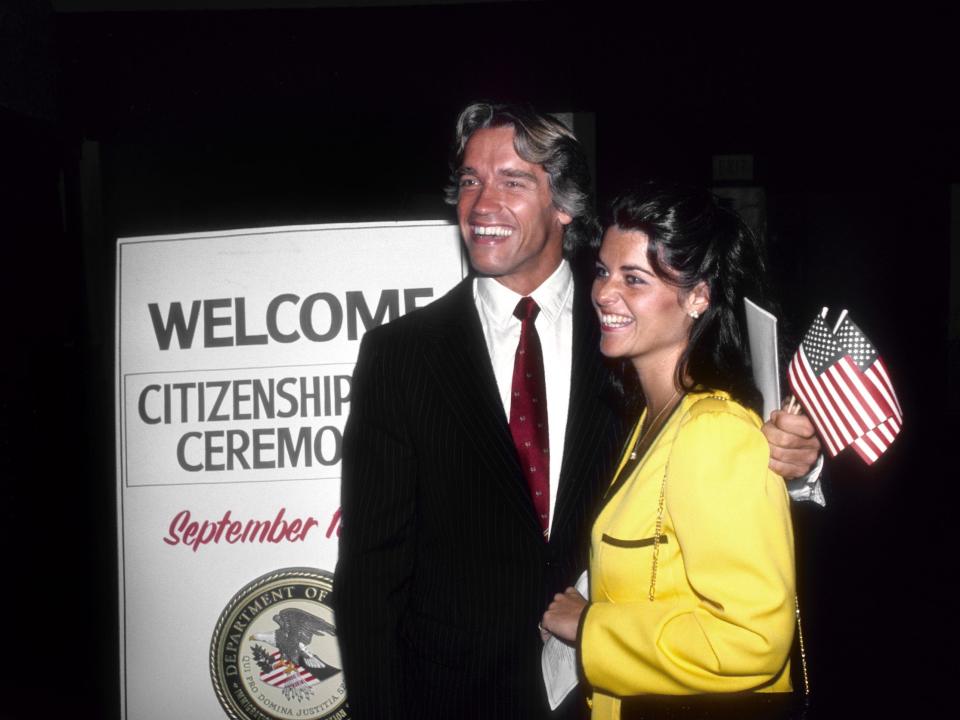
Throughout this period, he continued to act and solidify his place in Hollywood.
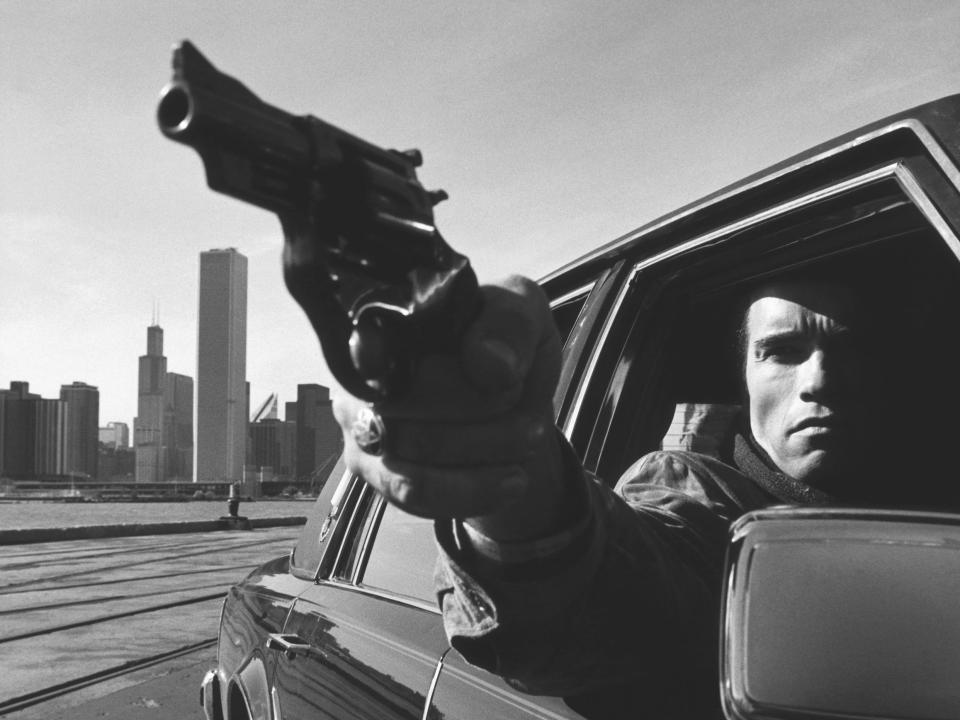
Since the release of "Pumping Iron," he had become one of the go-to choices for brutal film leads, alongside Sylvester Stallone.
But Schwarzenegger was yet to have a real hit. He wasn't an obvious choice for Hollywood — he had a thick accent, an unpronounceable name, and wasn't conventionally trained.
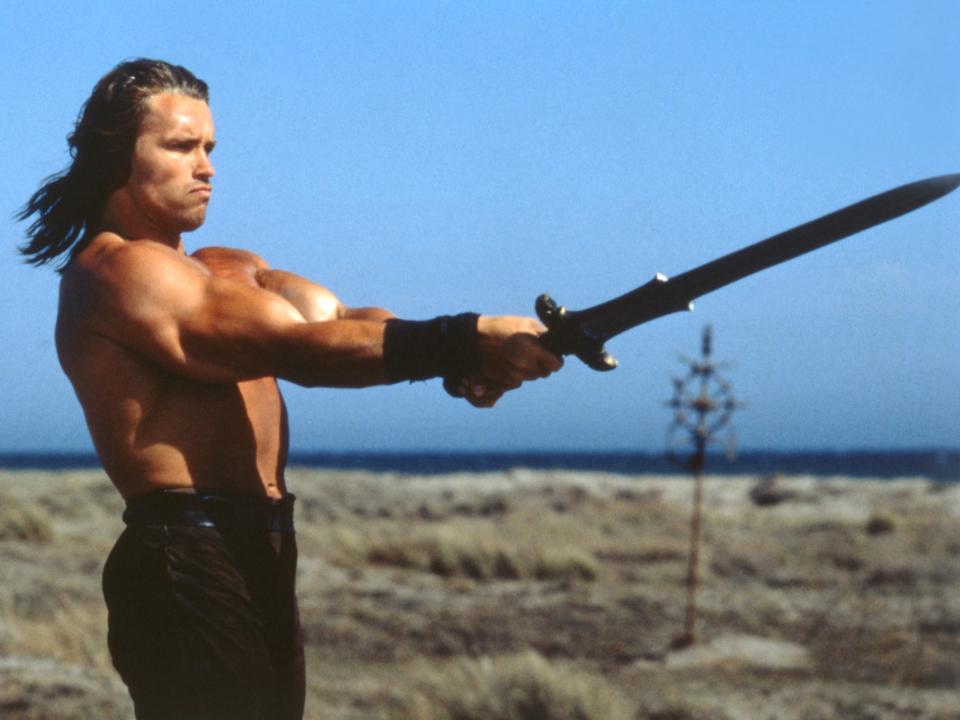
But that all changed when "Conan the Barbarian" came out.
The movie grossed more than $100 million, Vanity Fair reported.
From 1982 to 1991, Schwarzenegger was a Hollywood heavyweight. He starred in a number of big films including "Terminator," "Terminator II," and "Total Recall."
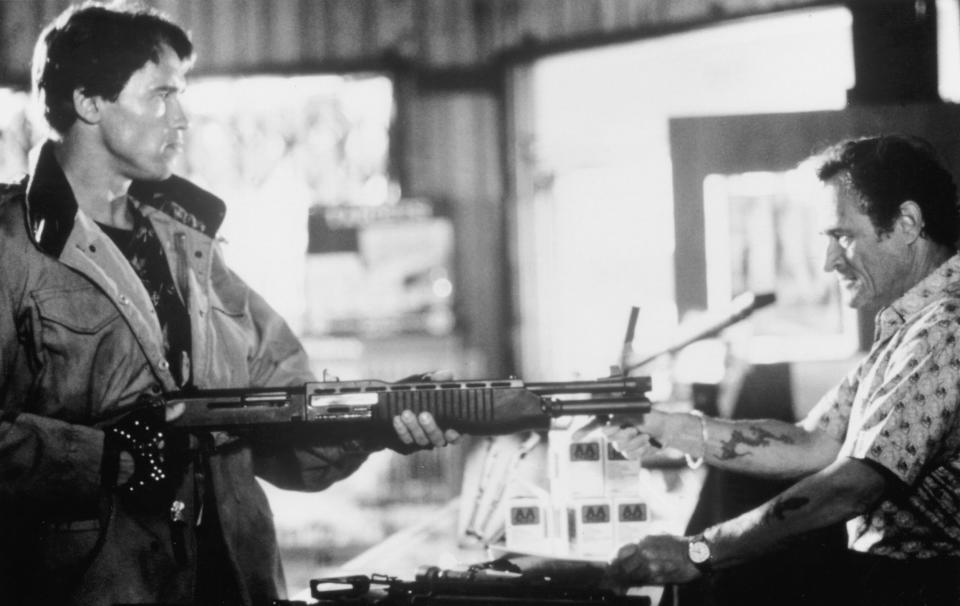
For a while, he made about $35 million per film, the Atlantic reported.
But his time at the top was relatively brief. After the release of "Last Action Hero" in 1993, his film career hit a slump and never really picked back up.
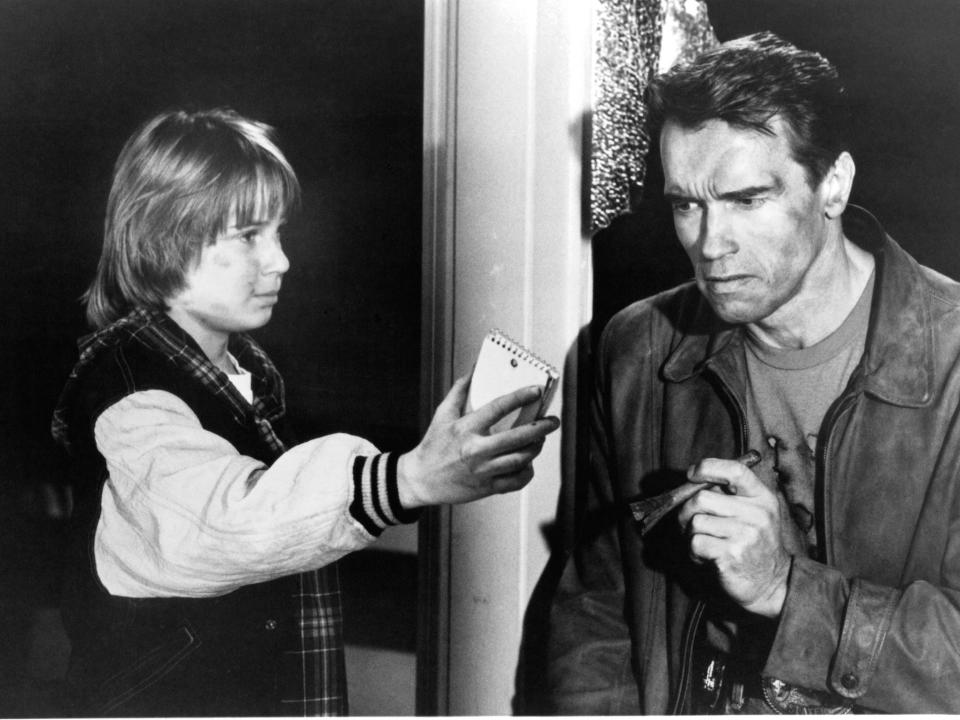
He continued to appear in films throughout the 1990s. Some were successful like "Twins," but many others were not.
In the 1980s and early 1990s, Schwarzenegger embraced the Republican Party, speaking on behalf of Republican politicians including Ronald Reagan and George H.W. Bush.
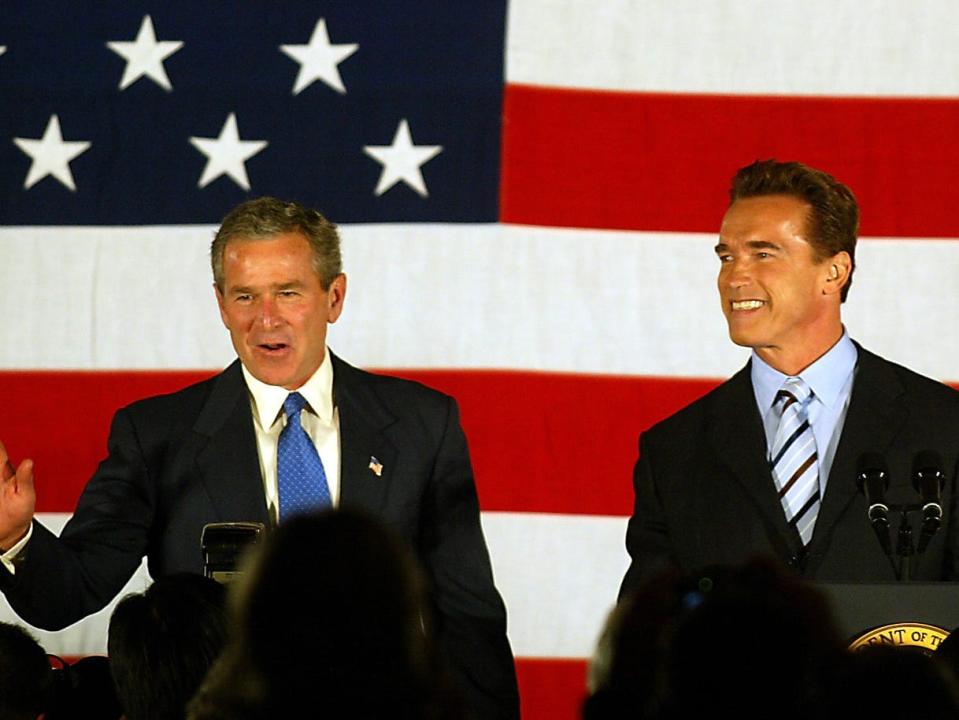
In return, Bush appointed Schwarzenegger chairman of the President's Council on Physical and Fitness and Sports, a government organization dedicated to promoting programs encouraging a healthy lifestyle.
But Schwarzenegger wasn't a diehard Republican.
In 1997, after he had heart surgery, he said, "We made, actually, history, because it was the first time ever that doctors could prove that a lifelong Republican has a heart."
Two years later, he told a reporter, "No one knows what our party really stands for rather than going from one convention to the next talking about what we're against."
In 2003, Schwarzenegger announced on "The Tonight Show" that he was running to be the Republican governor of California.
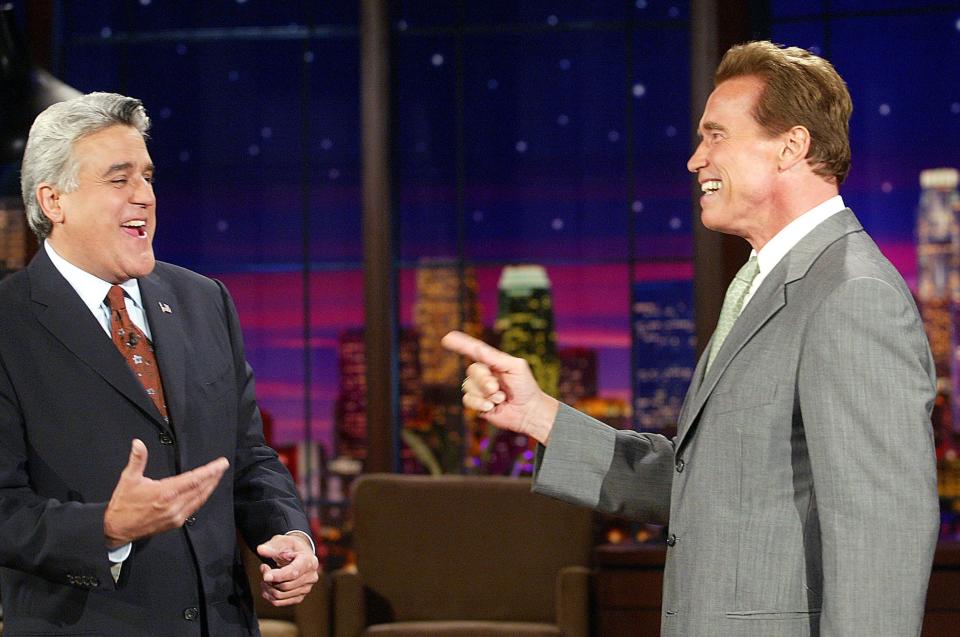
On the show, he said his decision to run had been a hard one.
"It was the most difficult decision that I've made in my entire life — except the one in 1978 when I decided to get a bikini wax," he said.
During his run, the Los Angeles Times published a report detailing six women accusing him of sexual assault.
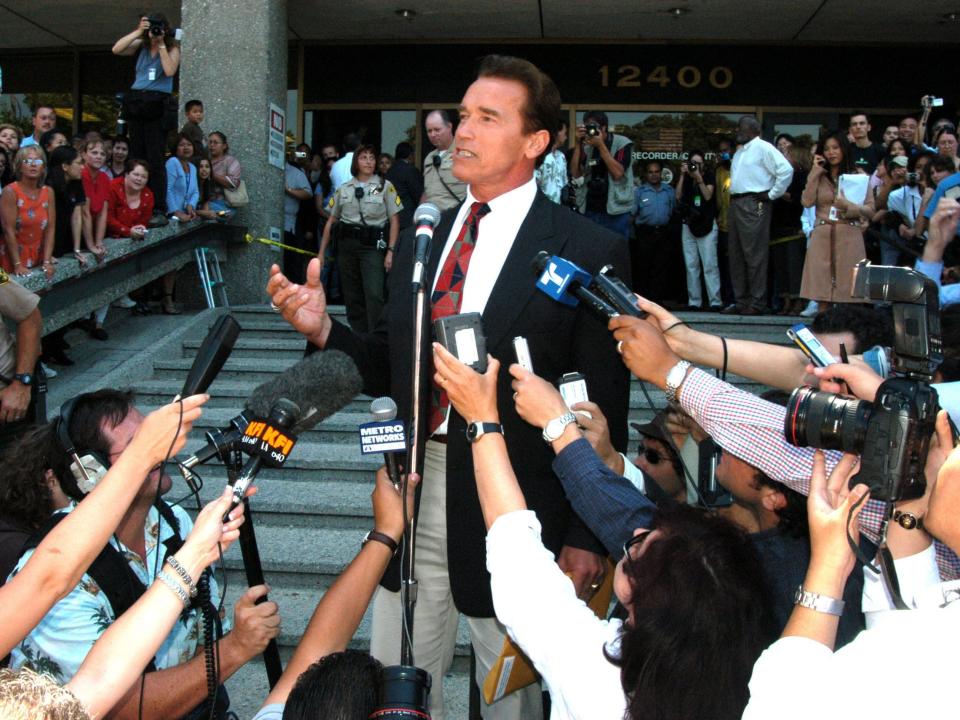
Three women said he grabbed their breasts and one said he'd reached under her skirt over the previous 30 years, the Los Angeles Times reported. Eventually, 16 women accused him of sexual misconduct.
He responded to the story during a rally.
"A lot of the stuff in the story is not true," he said. "But I have to say that where there's smoke, there's fire."
An old interview published in 1977 in a magazine called "Oui" also resurfaced during his campaign and was met with controversy.
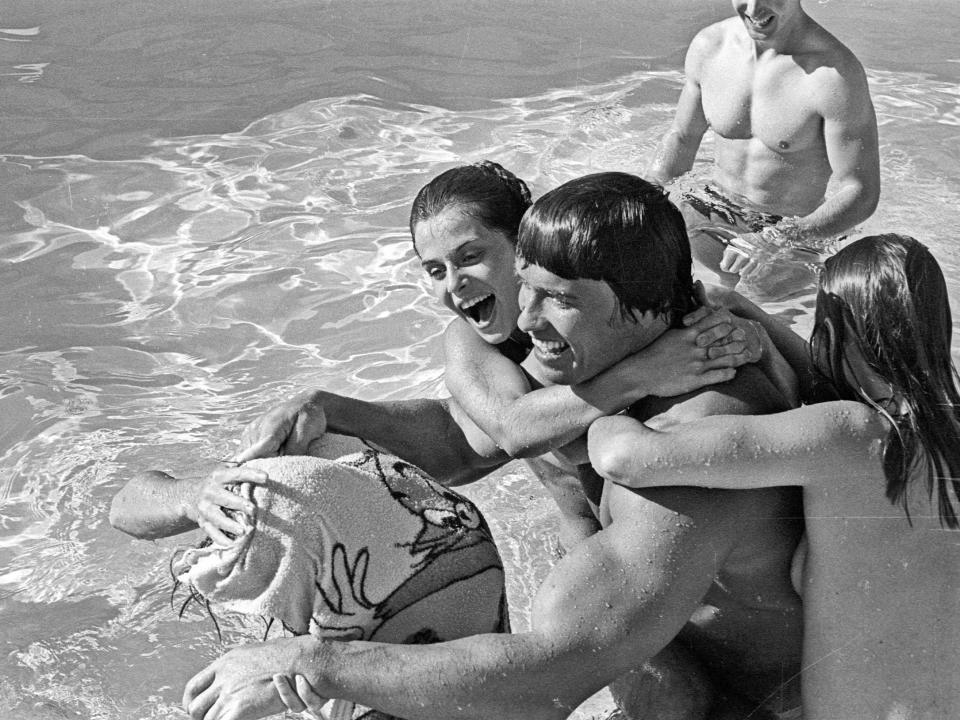
In the interview, he described joining in group sex acts, taking drugs like cannabis, his thoughts on homosexuality, and the objectification of women.
In the original interview, he said, "Girls became sex objects. I saw the other bodybuilders using them in this way and I thought it was all right."
"My attitude about all that has changed radically. I used to feel that women were here for one reason," he later said in the interview. "Sex was simply another kind of exercise, another body function ... In fact, it wasn't until four years after I started training that I had any meaningful communication with a girl."
After initially denying the interview during his campaign, he later said he remembered it and said, "I never lived my life to be a politician. I never lived my life to be the governor of California."
Shriver, who gave up her TV news job so he could run for governor, came out in his defense.
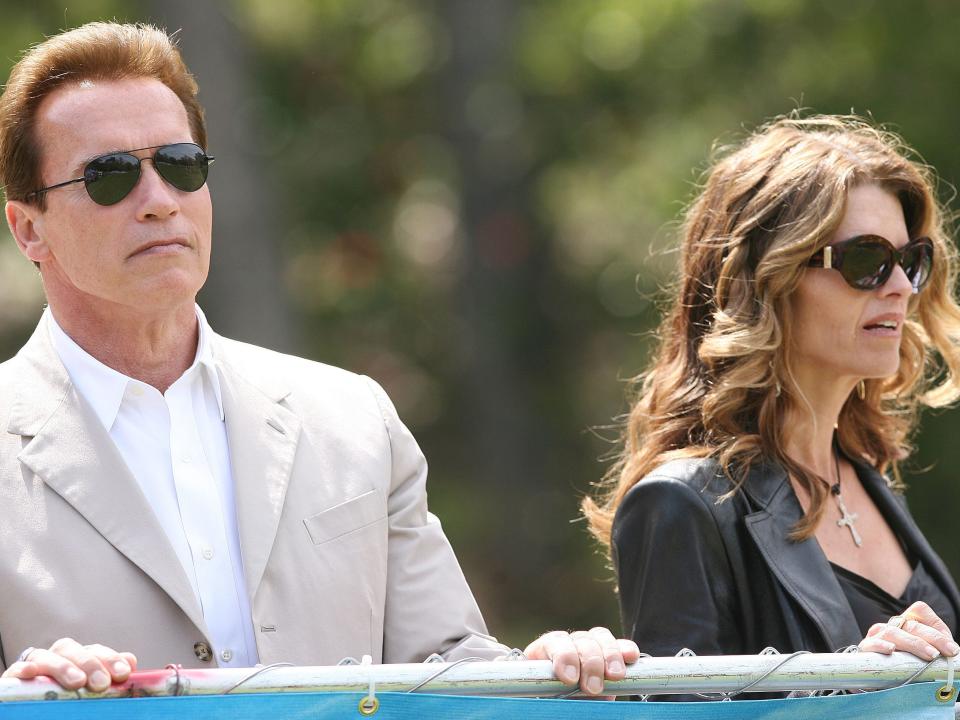
"I wouldn't be standing here if this man weren't an A-plus human being," she said. "I wouldn't be taking my time, I wouldn't have left my job that I love, I wouldn't be doing any of this if I didn't believe in this man."
Despite the accusations and controversy, Schwarzenegger won the election.
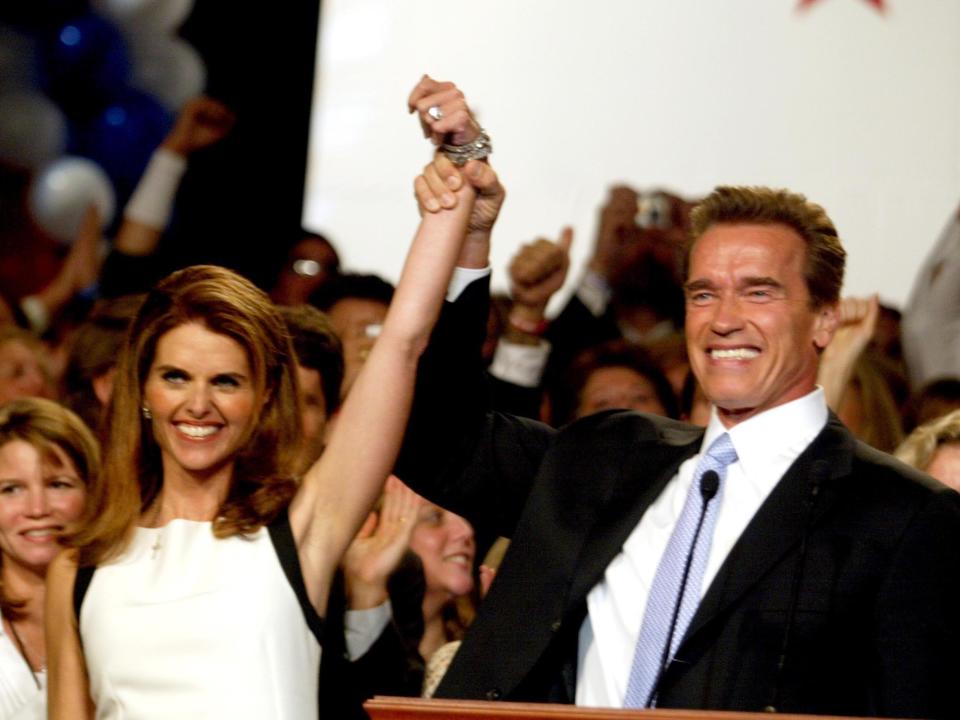
In his first speech, he made some promises he would struggle to keep.
"I have never been afraid of the fight, and I have never been afraid of the hard work," he said. "I will not rest until our fiscal house is in order. I will not rest until California is a competitive job-creating machine. I will not rest until the people of California come to see their government as a partner in their lives, and not a roadblock to their dreams."
The following year, his political acumen was so strong that people discussed the possibility of amending the Constitution so he could run for president.
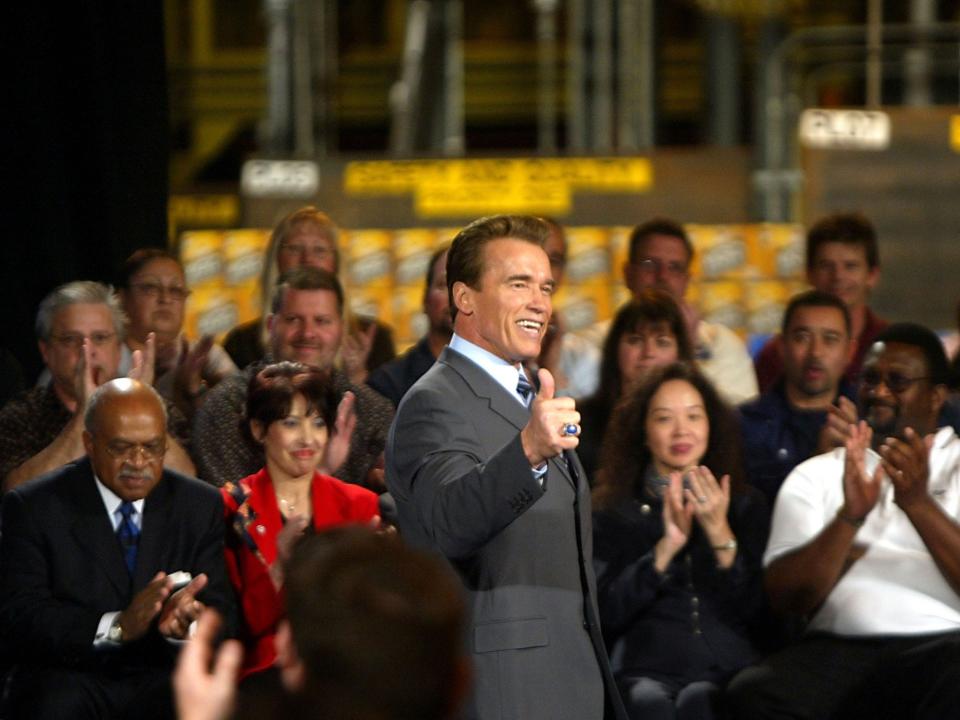
But it never went anywhere.
Schwarzenegger was re-elected in 2006, but his two terms were a struggle.
One of the problems was that he wasn't a typical Republican — he supported gun control and gay rights — but he also angered Democrats two years into his term when he tried to pass a number of initiatives relating to unions, reform, and teachers.
When he left office in January 2011, his approval rating had fallen to 22%, though critics admitted he had done some good, including his work on climate change.
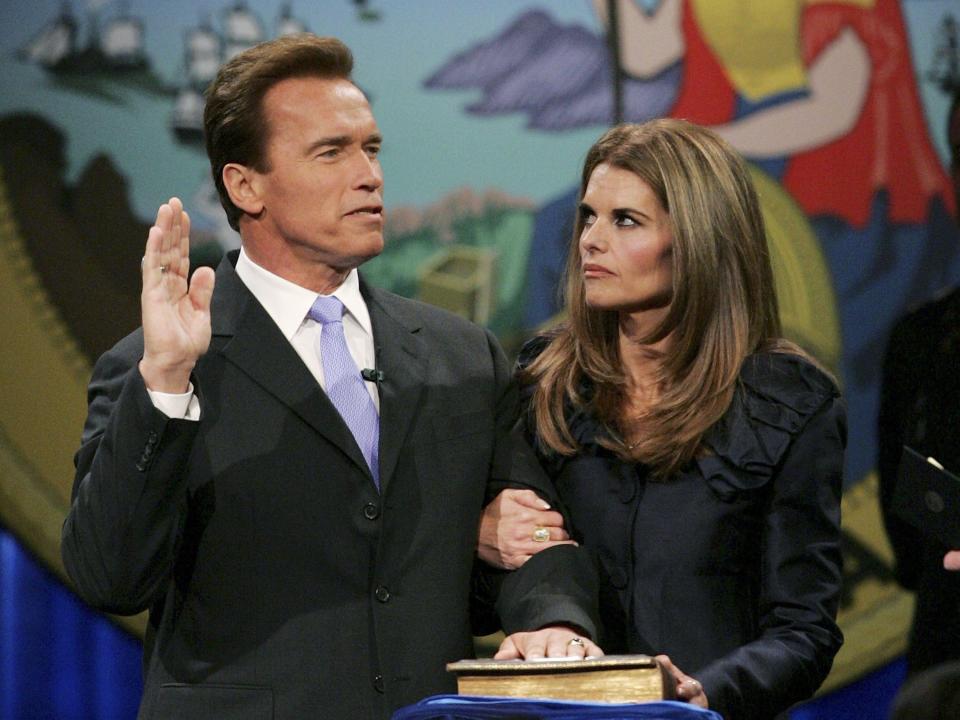
It was the lowest-ever rating for a California governor, tied with Gray Davis, the governor before him.
But Schwarzenegger didn't disappear. In May, he was back in the news after publicly admitting to having had a child named Joseph with Mildred Baena, the family's housekeeper, in the 1990s.
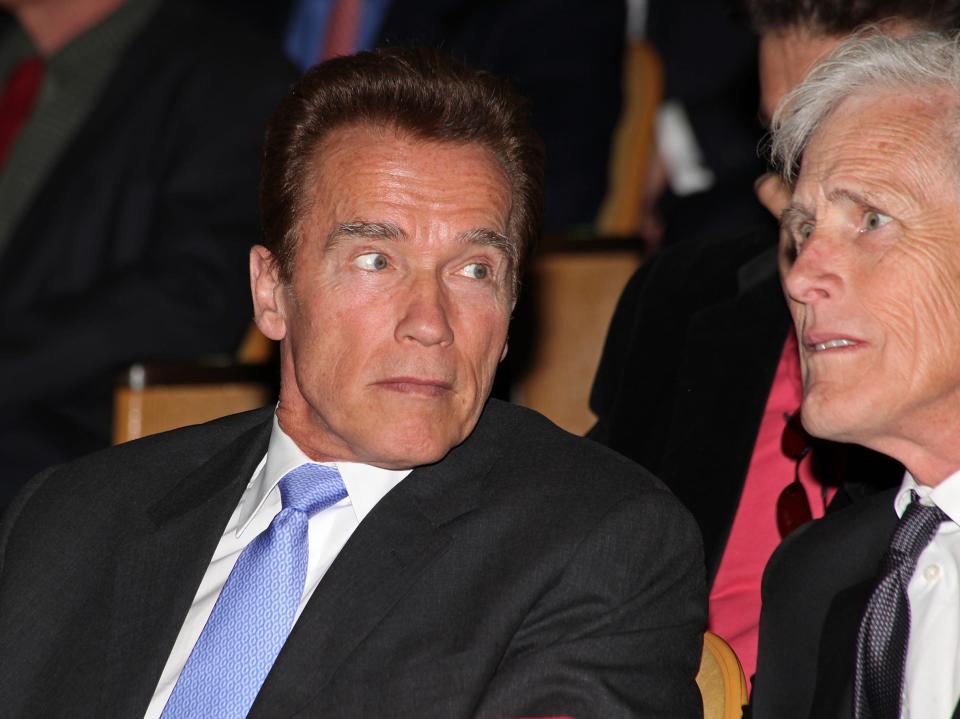
It turned out Baena was pregnant at the same time as Shriver had been. Shriver and Schwarzenegger separated, and after a failed attempt at marriage counseling, Shriver later filed for divorce.
In 2012, during a tour for his memoir, "Total Recall," he said it was "the stupidest thing I've done in the whole relationship."
"It was terrible," he said. "I inflicted tremendous pain on Maria and unbelievable pain on the kids."
Since leaving office, Schwarzenegger has kept busy. He appeared in new movies, campaigned for causes, and had his own "The Celebrity Apprentice," which was canceled in 2017.
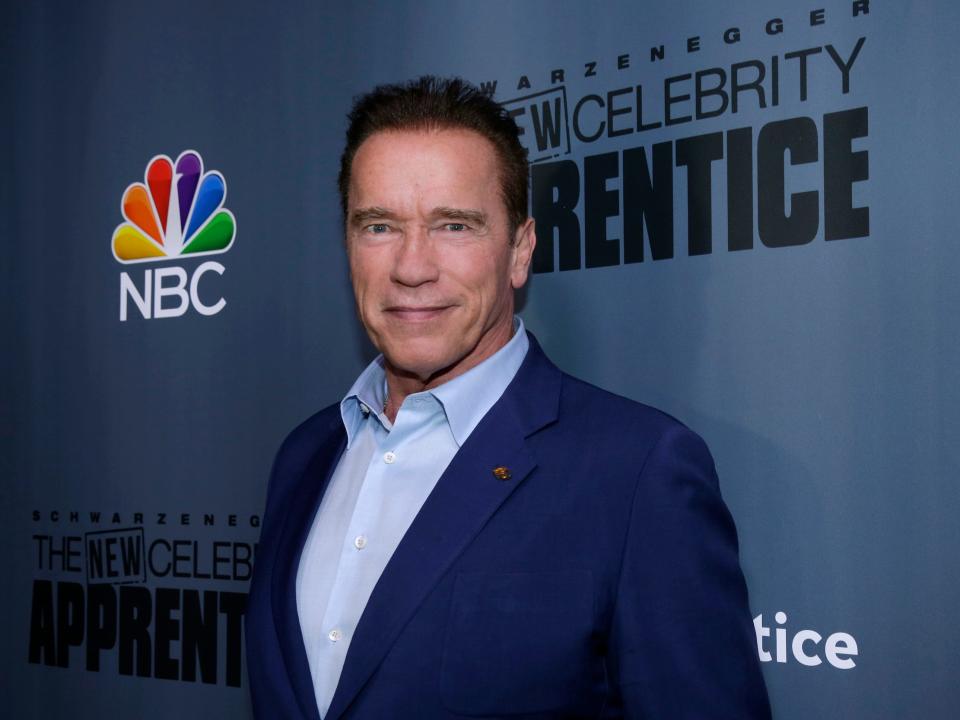
Schwarzenegger confirmed he would not return after the first season because there was too much "baggage," NBC News reported.
He pointed to the fact people boycotted the show since former President Donald Trump was still involved as an executive producer.
During the pandemic, he became popular on social media. He posted brash, funny clips telling people to wear masks or exercise and not to party.
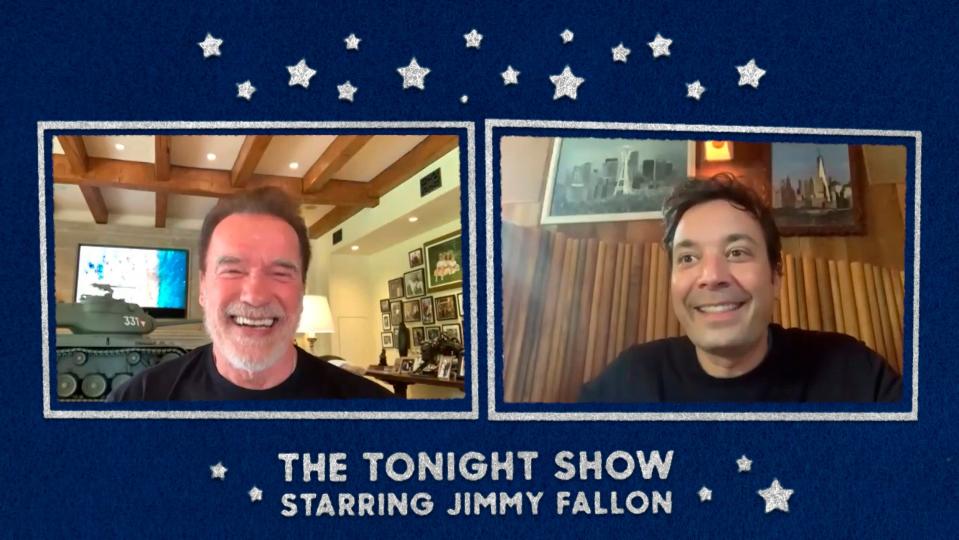
His videos later got more serious.
On TikTok, one of his videos condemning the January 6 riot got 80 million views.
But since the end of the pandemic, his social media presence has pulled back.
In March, he told the Atlantic that he was writing a self-help book that had a working title of "Be Useful," and was figuring out his next step.
In an interview with the Atlantic, he said he's not done yet.
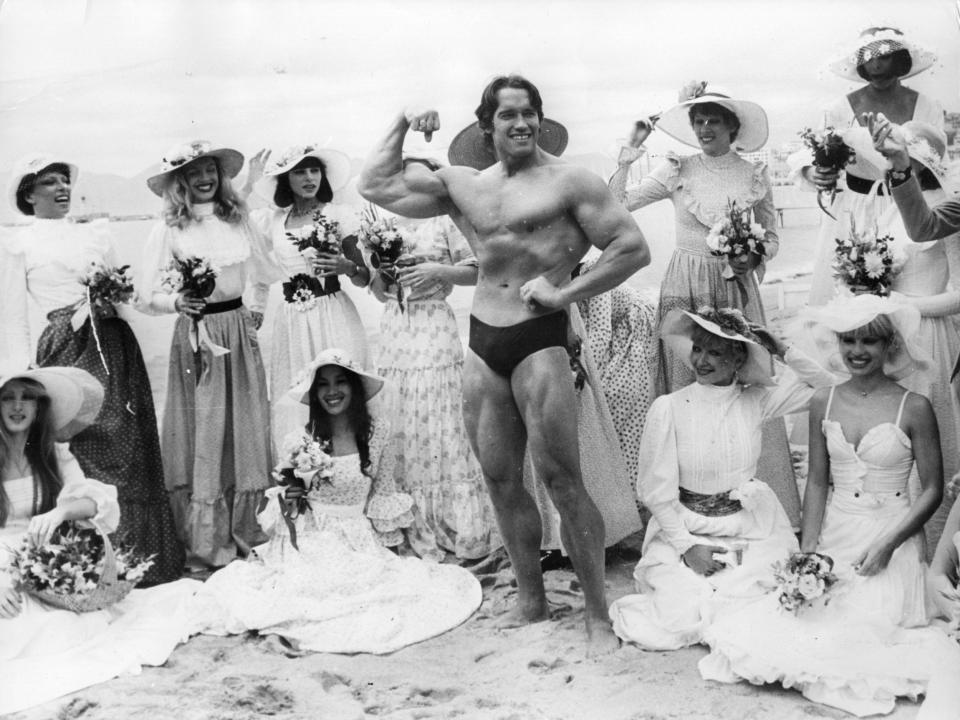
"If you have the kind of life that I've had — that I have — it is so spectacular," he said. "I could not ever articulate how spectacular it was."
Read the original article on Insider


